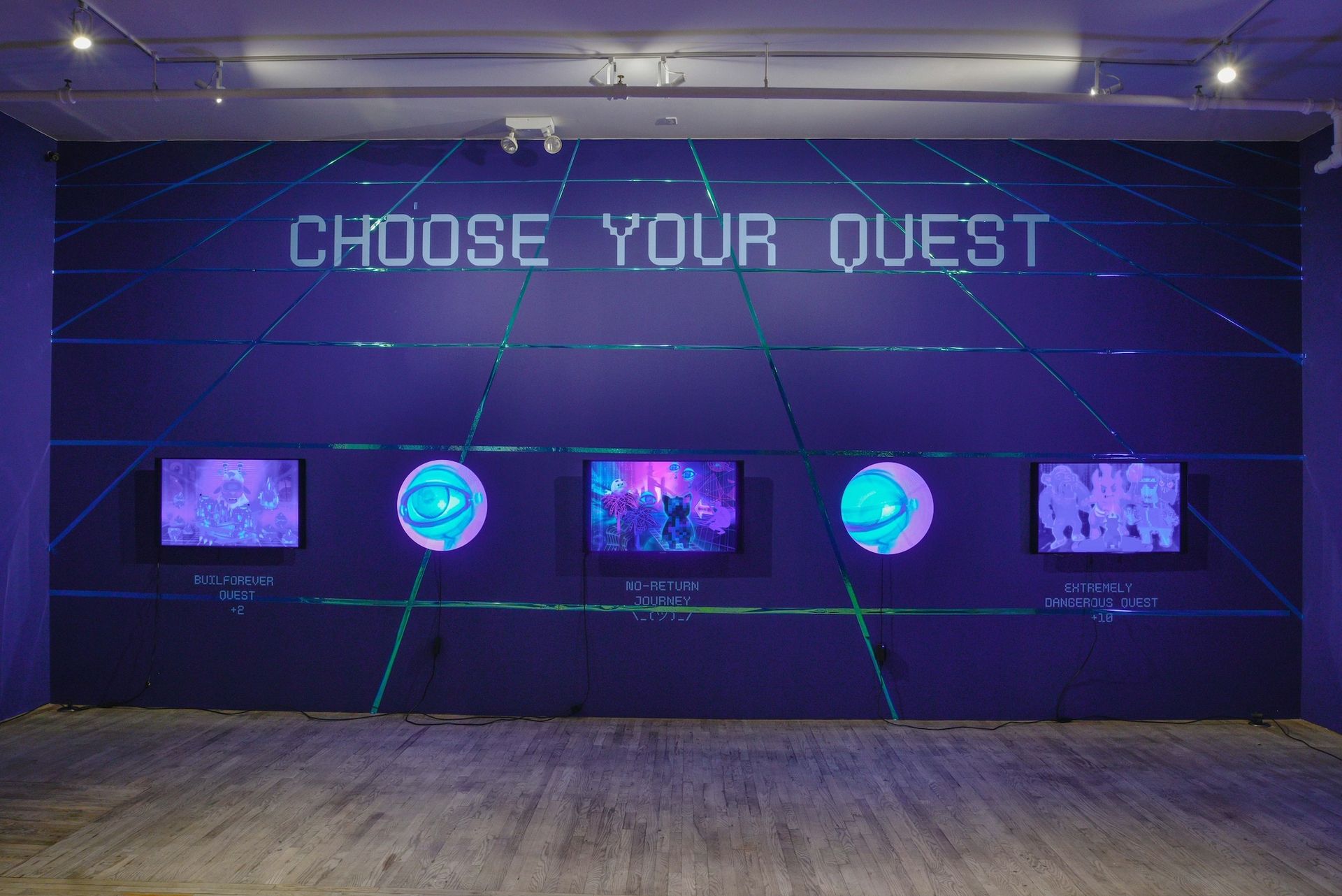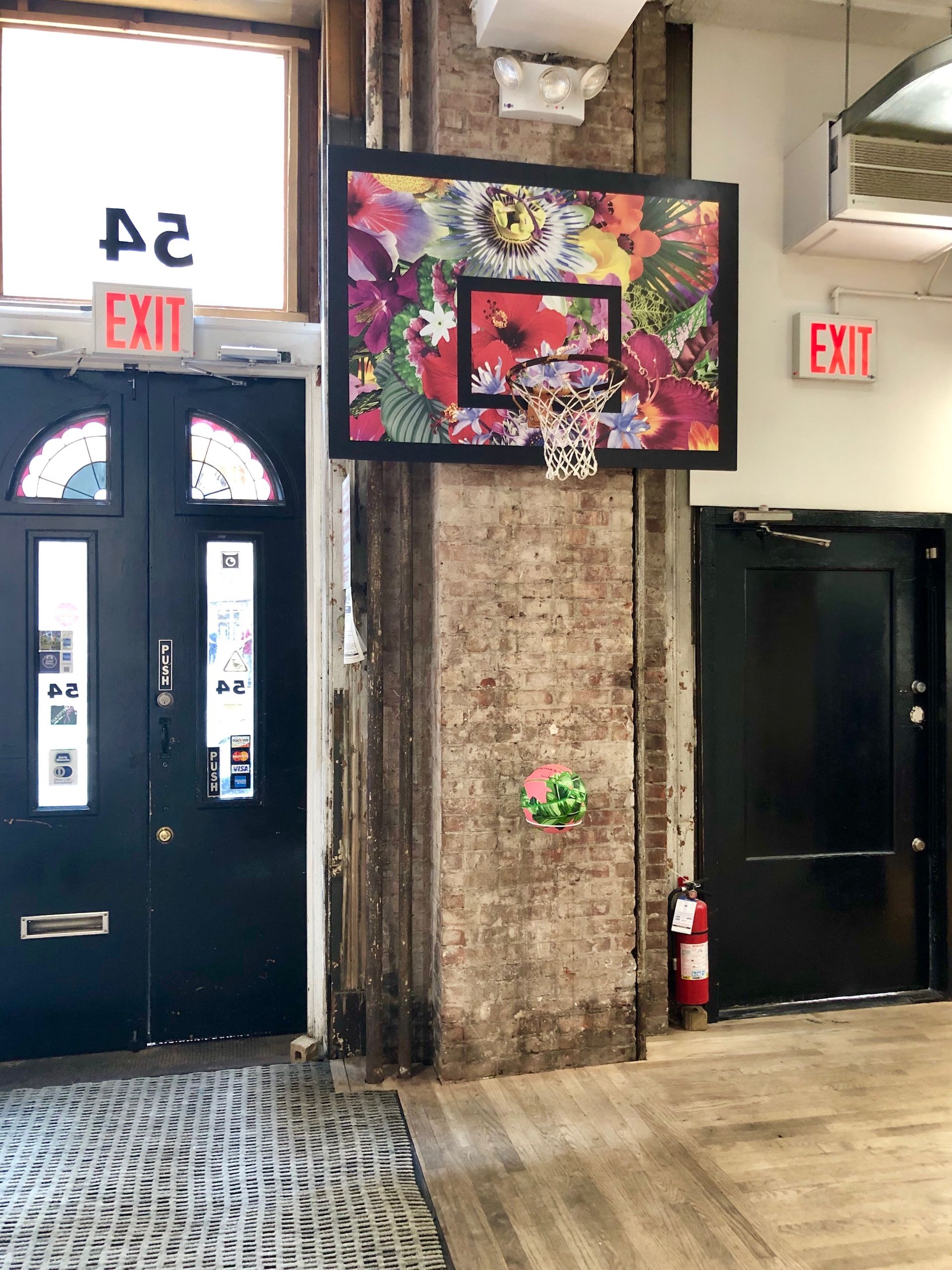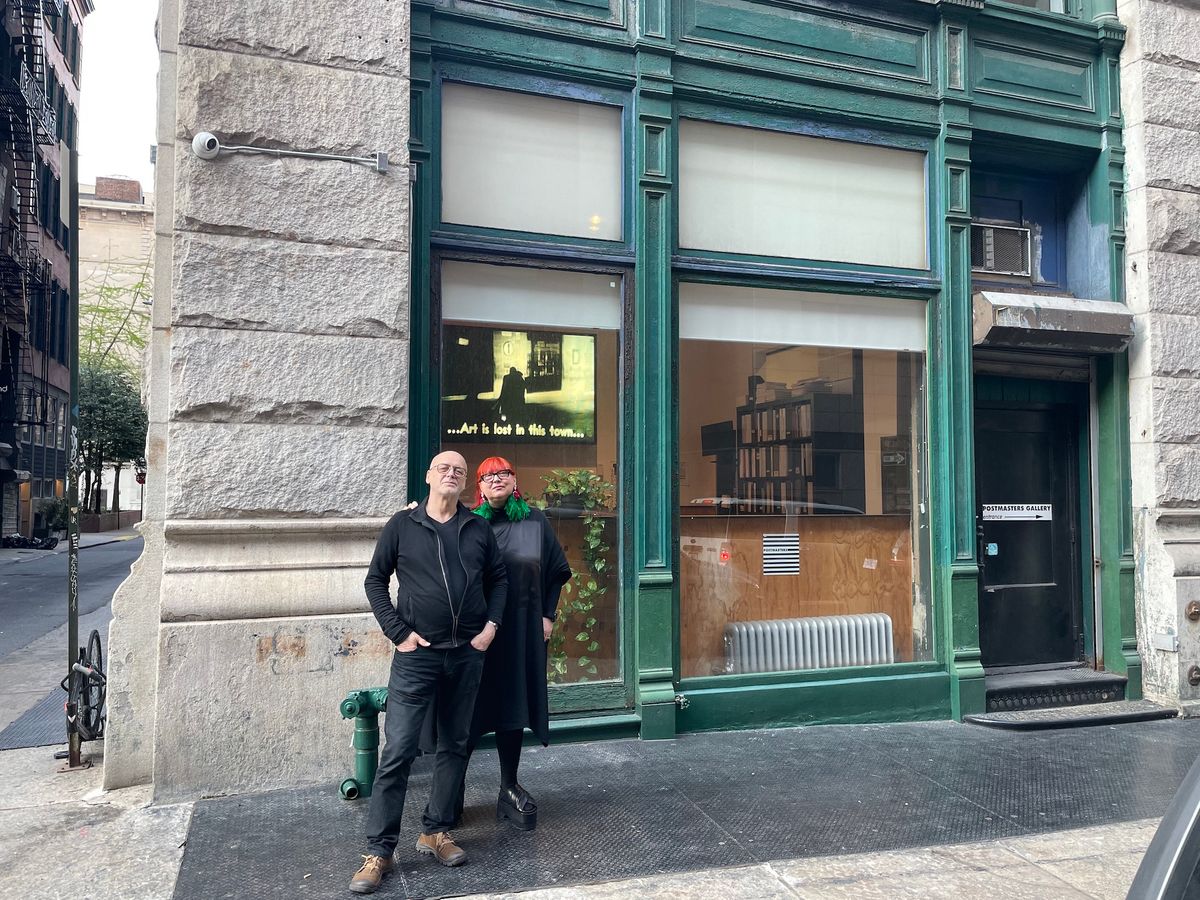After nearly a decade of operating in Tribeca, Postmasters, the veteran gallery that has been a pioneer in showing new media art, will close its doors next month and become a nomadic space. Founders Magda Sawon and Tamás Banovich, who established the gallery in 1984, say they have lost a legal battle with their landlord over rent payments and will vacate after the current show, a solo exhibition by Gracelee Lawrence that ends 23 July.
“This is our attempt to do the things we want to do in an uncompromised way,” Sawon says. “The effort is to spin into another way of doing business and attempt this model that I think is more realistic for galleries like ours that are a bit more progressive and working with material that is not 100% supported by easy collectability.”
Postmasters will find different spaces around New York to host brick-and-mortar shows, starting this fall with a monumental exhibition of the scientist-artist collective BarabasiLAB and a multimedia project by Jen Catron and Paul Outlaw. Its founders will also continue to maintain PostmastersBC, a digital NFT (non-fungible-token) platform that launched in March 2021, and their Rome outpost PostmastersROMA, where rent is ten times less than that in New York, according to Sawon.

Olive Allen, welcome to the metaverse installation (30 April-28 May 2022) Courtesy Postmasters
Founded in the East Village, Postmasters was an early champion of digital art, exhibiting it since 1991 and selling unconventional works, like websites by Rafaël Rozendaal. It survived amid the volatility of New York real estate—among other financial crises—by moving to Soho in 1989, then Chelsea in 1998, and finally Tribeca in 2013, where it has exhibited artists such as Molly Crabapple, David Diao and Federico Solmi in an airy 6,500-sq.-ft space. Its last move long predated the mass migration of galleries to the downtown neighbourhood from Chelsea, which accelerated during the pandemic as dealers found deals in one of the country’s most expensive zip codes. Among the relative newcomers are David Zwirner, The Hole and James Cohan; Pace Gallery will move in later this year, and London’s Timothy Taylor recently announced that it will relocate from Chelsea to a 6,000-sq.-ft Tribeca space in 2023.
“I think it’s pretty significantly saturated at this point,” Sawon says of the activity in the neighbourhood. “But there’s no middle ground in Tribeca. It’s either these super-expensive ground-floor spaces that are only affordable to a very high-end gallery or young galleries that operate with adventurous programs. I don’t belong in these situations, and I want to make a different model. Very likely, a lot of people will have similar thoughts.”
The gallery did not have to pay full rent during the height of the Covid-19 pandemic, but its landlord later sued for unpaid amounts. Sawon admits she would stay if someone had stepped in to subsidise the space, and she cites the gallery’s central location and distinct architectural details among the things she will miss most. But she adds that moving to a new model—and a chapter the gallery is calling Postmasters 5.0—allows the business to maintain its vision without bending to pressures from both the real estate and art markets.

The main entrance to Postmasters, with a basketball installation by Carlos Rolon (2020) Courtesy Postmasters
“We lost the case and we decided to leave,” Sawon says. “Everything else would require enormous compromise of showing sellable art, rather than showing the art that we think has historical resonance and is shown very early, and not always gets this kind of immediate hand clapping and business.”
PostmastersBC, or Postmasters Blockchain, is an example of how the gallery has held on to its mission of supporting digital experiments while participating in the trendy NFT market. The in-house platform sells NFTs by up-and-comers like Olive Allen and Pussykrew but also offers historical material, from a single-pixel movie made in 1994 by Lev Manovich to Vuk Ćosić’s 1998 ASCII movie Deep ASCII. Artists and buyers are protected by a smart contract created by the NFT development company Monegraph, whose co-founder Kevin McCoy is represented by the gallery. “It’s very caring for the work that is art,” Sawon says of PostmastersBC. “They are not monkey collectible things. For us, NFT is a possibility for digitally native artworks.”
Postmasters is vacating at short notice due to the lawsuit, but its founders say they embrace the pivot as yet another opportunity for creative risk-taking and playfulness. “This kind of improvisational nature and flexibility are very important points for us, and we believe that this way of operating allows for that much more than being basically strangled by real estate obligations,” Sawon says. “Good art will survive in any place.”


